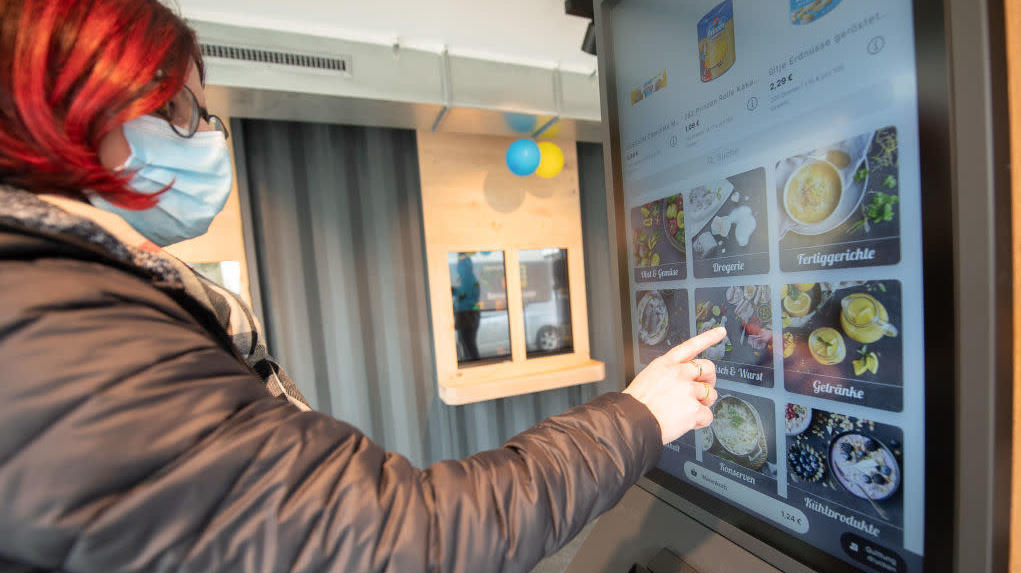A Peek At The Skyscraper Grocery Stores Of The Future
We've talked before about how Amazon has spent the past few years branching into cashierless grocery stores: shoppers simply scan a QR code upon entry, let Amazon monitor them as they shop, and then leave with their items, which will then get charged to their Amazon account. Part of the reason this model is appealing to companies is that it's basically a smaller, more aesthetically pleasing version of the warehouse fulfillment model they already use. And now more companies are getting into the "micro fulfillment" game, even in dense urban areas where building large grocery stores seems like an impossible task. Grocery Dive reports that Urbx, a new Boston-based startup, is pioneering a "vertical" approach to grocery shopping. Translation: robotic grocery store skyscrapers.
Okay, so the buildings aren't exactly towering, but the specs are definitely unlike any grocery store you've ever heard of: the Urbx Market concept fits on just 1,800 square feet of real estate and contains an automated fulfillment system that reaches 150 feet tall. Grocery Dive explains it this way:
Pickup orders and e-bike deliveries will get orders to shoppers within an hour. There will also be a small storefront where shoppers can order using kiosks, or with their phones, and robots will bring their orders out to them within minutes. Order picking and packing will happen in a basement level, furthering the focus on vertical alignment.
The robots all travel along tracks that take them vertically or horizontally, and like self-driving cars, each one comes equipped with software to optimize its route through the store to ferry goods to customers. Sounds elaborate, but because of its lower real estate costs and "higher e-commerce productivity," Urbx Market is estimated to have roughly the same building costs as a normal Whole Foods ($5-7 million).
The first of these stores is slated to be built in Boston by the end of 2022 and you can read much, much more about it here. This is normally where I'd declare that "this is not how I want to shop" and that "waiting on fulfillment robots sounds like the most tedious thing in the world," but those statements presume the tech world is going to give us anything resembling a choice in the matter. Efficiency is the currency of Silicon Valley, no matter what small pleasures (chatting up your cashier, selecting the perfect pear) are hacked off your experience along the way to accommodate it. If enough of these innovators insist that the future will be "driven by e-commerce," as Urbx co-founder Lincoln Cavalieri does, then it becomes a self-fulfilling prophecy. At the very least, this method of shopping doesn't appear hellbent on acquiring our biometric data.
